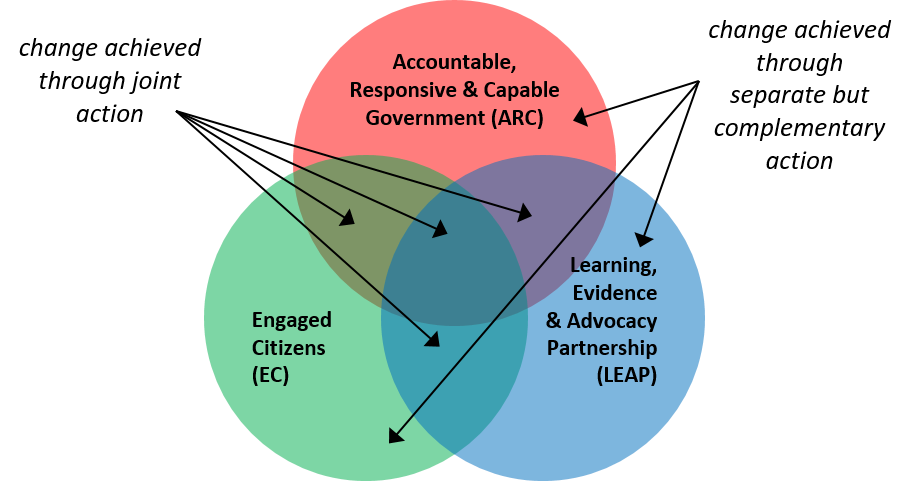The Partnership to Engage, Reform, and Learn (PERL)is a five-year public-sector accountability and governance programme, funded by the Foreign, Commonwealth and Development Office of the UK. Launched in 2016 as a politically smart and adaptive programme, PERL aims to improve collaboration between governments and citizens to tackle governance challenges and improve service delivery.
PERL works in seven locations across Nigeria
- The Federal/National level
- The partner states of Kano, Kaduna, and Jigawa
- The South West Regional Hub with an office in Lagos (Lagos, Ogun, Ondo, Osun, Oyo and Ekiti states)
- The South East Regional Hub with an office in Enugu (Enugu, Abia, Imo, Ebonyi and Anambra states)
- The North East Regional Hub (Borno, Yobe and Adamawa Yobe states)
Understanding what works in promoting governance reform, what does not work, and the reasons behind them, have shaped PERL's work to support initiatives led by the government and citizens. Through its partnerships, the programme is committed to improving the lives of people in Nigeria, with a special focus on women and other marginalised and excluded groups.
The programme is implemented through three distinct but connected pillars (see who we are).

PERL has learned from the successes and challenges of previous governance reform projects and programmes of the then Department for International Development (DFID), which has now merged with the Foreign and Commonwealth Office in the newly created Foreign, Commonwealth & Development Office (FCDO). These legacy programmes include:
- The Federal Public Administration Reform programme (FEPAR)
- The State Partnership for Accountability, Responsiveness and Capability (SPARC)
- The State Accountability and Voice Initiative (SAVI)
These programmes highlighted factors leading to inefficient expenditure and provided mechanisms for addressing them thus leading to budget realism, and positively influenced government’s approach to strategic planning at both the Federal and State levels. They also demonstrated the vast potential in stimulating citizens' advocacy for better governance and more responsive decision-making processes by the government. PERL has taken and built on the lessons from these programmes and within the international development field about the need to bring together citizens’ voices and government accountability to improve service delivery, and is testing how that works more effectively in real-time.